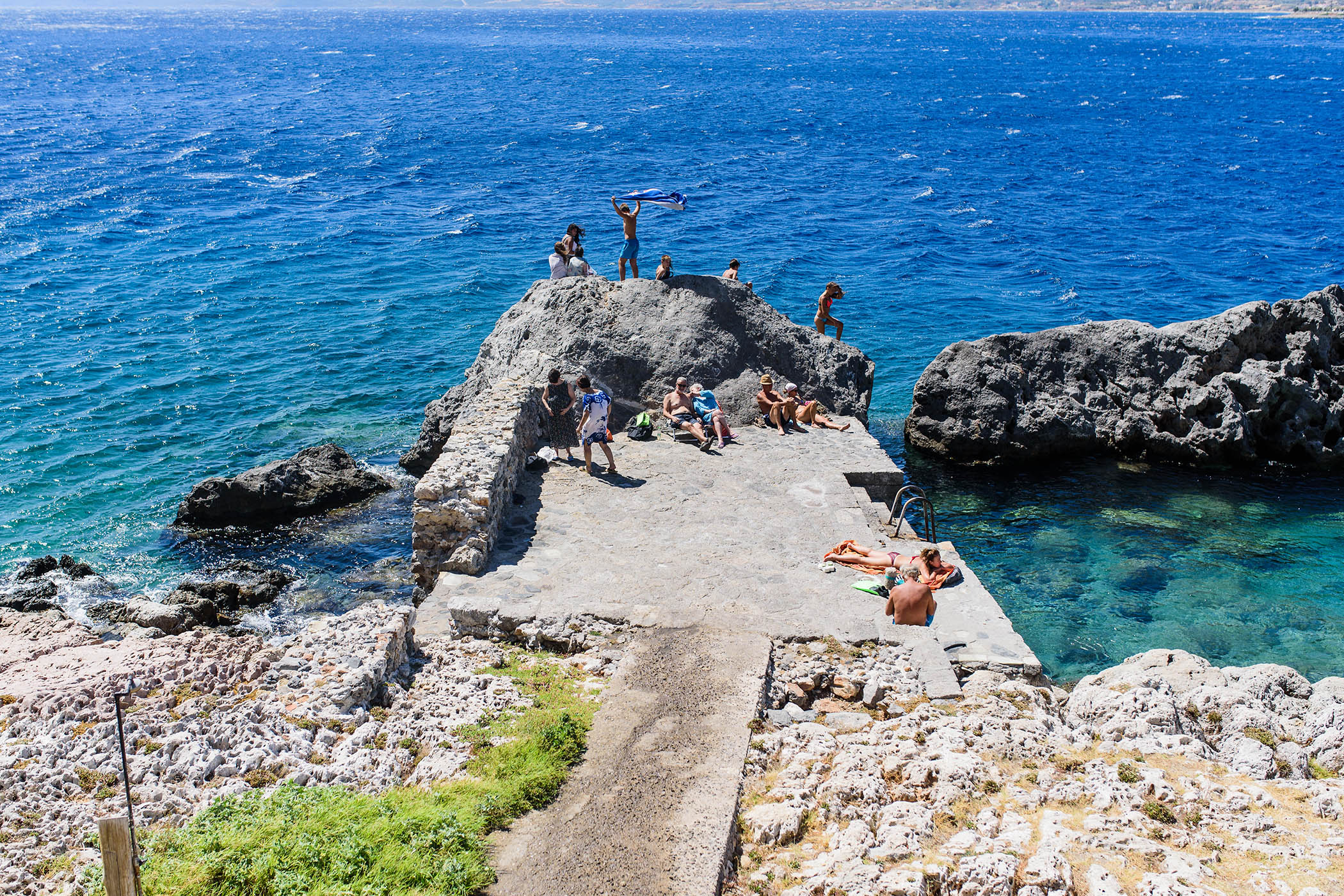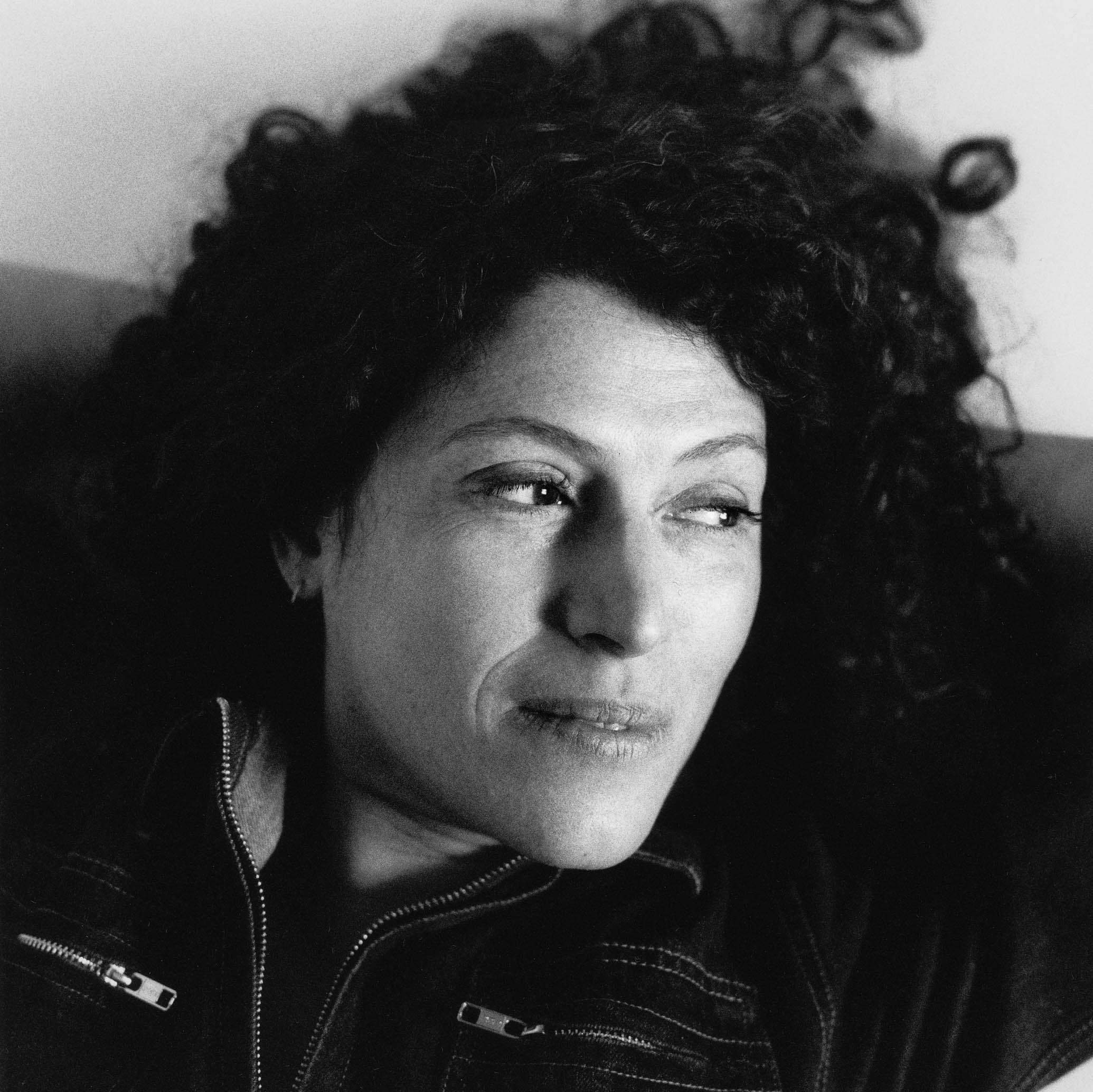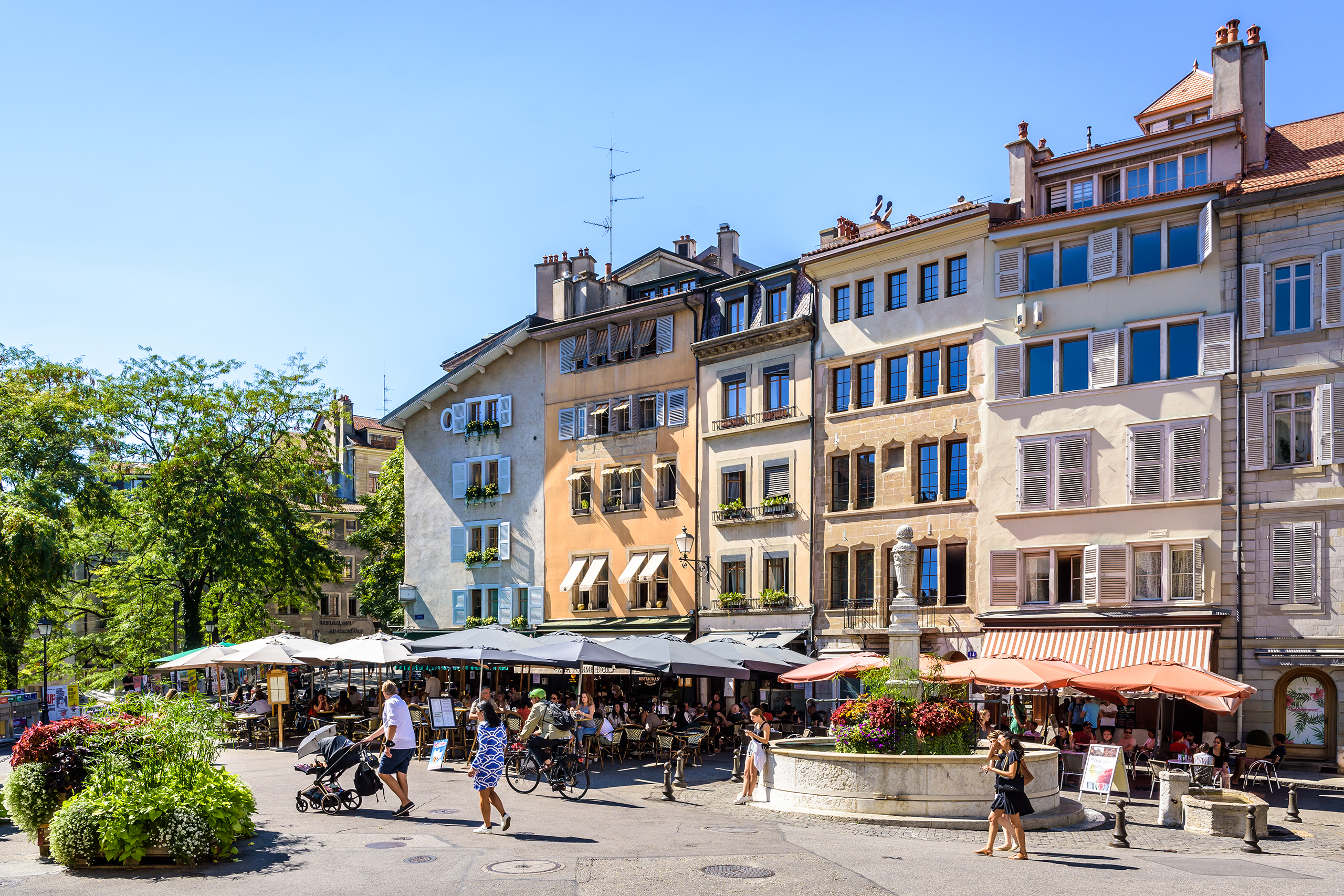Ah, the simple pleasures of a Greek holiday: azure sea against feta-white buildings; the scent of wild fig trees; black blood-and-vinegar Spartan soup; women in armour; eyelinered bull-leaping princelings... Wait. I need to remember we’re not in Ancient Greece.
I’ve been in love with Greece since what was, for others, childhood, and for me was a wonderful opportunity to do archaeological digs in flowerbeds. I may never be cool, but at least I know Athenian battle manoeuvres and the little-used optative mood; I even included a Greek tragedy lecturer in Wife, my latest novel, so I could think about eerie olive groves. But I hadn’t been to Greece for years; my girlfriend never had. “It’s time,” I announced. “Let me show you where my heart lies.”
My requirements were modest. Being, by now, practically Greek myself, I shun tourist nonsense: beach resorts, English couples in swishy linen separates. I wanted traditional yet delicious food, old men in nipple-height trousers, affordable authenticity with (ideally) no driving, nowhere near Athens.
But there is simply too much Greece. It’s impossible to choose between versions of perfection, let alone to research, last minute, somewhere new. I dithered: were the Cycladean or Dodecanese islands more in need of our euro? Wooded Thessaly, rugged Ithaka; Crete, northern or eastern? Maybe Nax–
“I’ve booked,” she said. “It was very cheap.”
Instantly, I knew she had erred. Where was our simple yet airy studio within walking distance of pine-scented empty beaches full of interesting pebbles and discarded arrowheads? As I feared, she had done the unforgivable. She’d asked AI.
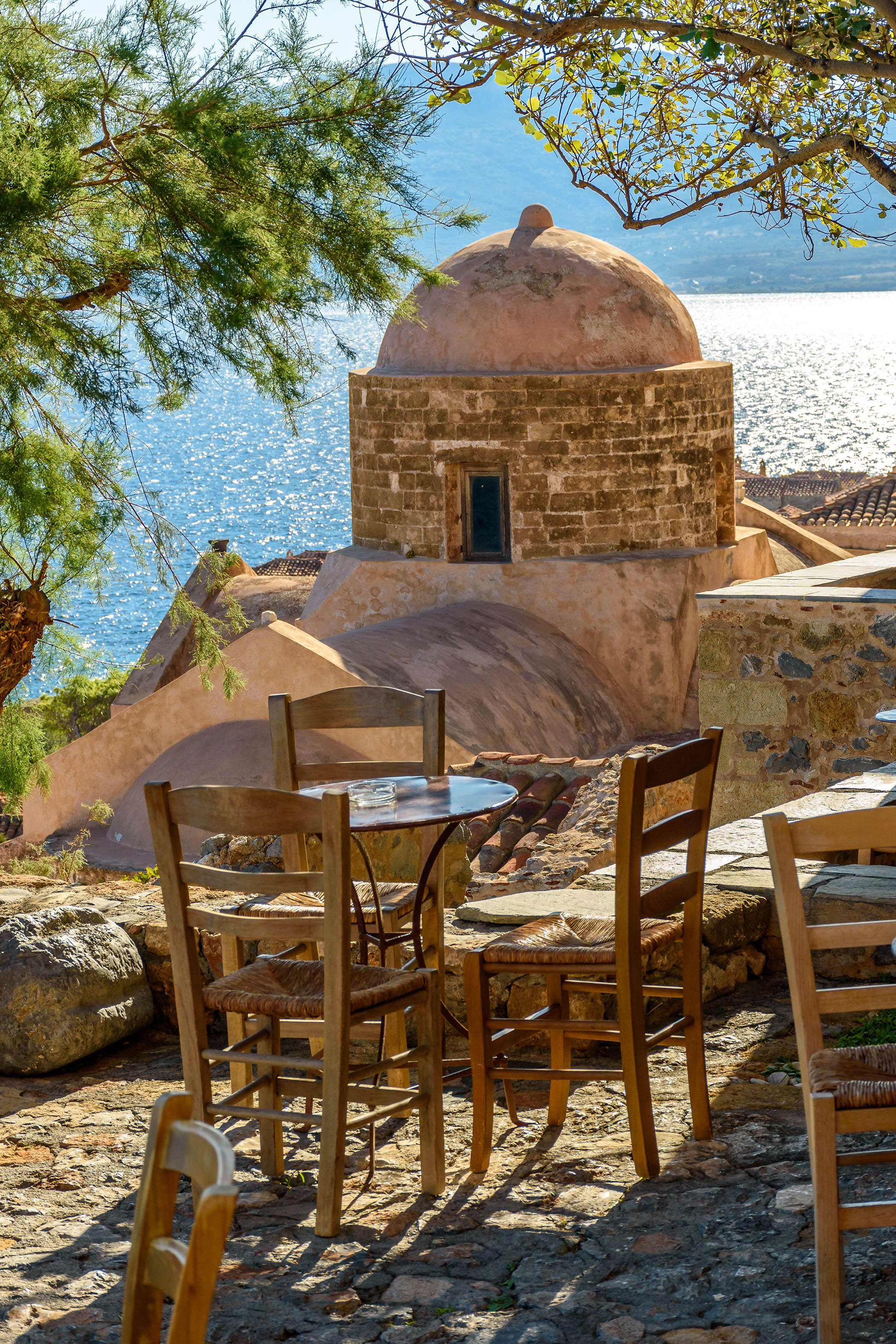
Follow the path: a traditional café overlooks the Church of St Nicholas
I hate AI. Everything about it frightens me, from the theft of writers’ work to the risk of obliterating humanity; when I hear it giving faux-personal advice (“great choice!”) I feel violent. Top of its stupid list was Monemvasia, a “tied island” attached by a causeway to the mainland, one of the four fingers of the Peloponnese. It’s now a heavily restored, largely ruined Byzantine fortress with no permanent residents, only restaurants and tourist accommodation, four mountainous hours’ drive from – yes – Athens.
So what if the real Greeks she had consulted claimed it was beautiful? Books are the only true source of knowledge. I knew, as surely as if I were an ancient seer deducing the future from goat entrails, that it would be a disaster. The question was: how bad?
Like Theseus’s return journey to Attika, ours involved many obstacles: a delayed four-hour evening flight; screaming children who relaxed by dropping Pringles tubes on our heads; then a costly taxi to our heavily security-grilled and inexplicably African-themed hotel in the graffiti district. In the morning, it was back into airport chaos to beg for our hire car before the trek towards our Disneyfied bogus-village hell could begin. Why hadn’t we simply given our money to a travel company and avoided the stress? Or bought a guidebook.
Yet as soon as Athens lay behind us, things looked up. Who knew there would be quite so many mountains? Not I, despite my extensive knowledge: miles upon miles of rust- or custard powder-coloured slopes; valleys peppered with olive and orange farms, simultaneously arid and cultivated – barren, beautiful. We passed shops selling roadside shrines, a colossal wind turbine blade waiting to be hoisted like an immense pale submarine, vinegar stalls, a removal lorry labelled Metaphoros. Every Greek word, each signpost, thrilled my philhellenic soul. I laboriously spelled them out: Korinth, Mycenaean palaces, the Myrtoan sea. Even the satnav pointed to Sparta. I was grinning. Could it be that the goat entrails had lied?
As soon as Athens lay behind us, things looked up. Who knew there would be quite so many mountains?
As soon as Athens lay behind us, things looked up. Who knew there would be quite so many mountains?
Around every inlet, new mountains and islands reared; when at last we glimpsed Monemvasia itself – huge, reddish, boulder strewn – it kept confounding us, vanishing and reappearing. We were too tired for this nonsense, or for the faff of arrival. Monemvasia means “one way in”; as instructed, we left our cases by the entrance to the car-free fort, returned to the mainland, reparked then trudged back along the burning causeway, lugged our cases up and down sun-bleached cobbled alleys – a mixture of Disney castle, overgroomed Tuscan hill town, building site and cemetery – and found ourselves in the tiniest imaginable room: a mousehole in a palace.
It was perfect.
Saltwater shower, fridge, air-conditioning unit aimed at the bed: both pretty and cool, unlike me. Breakfast the next morning, included in the almost offensively bargain price, was a fantasy of olives/honey/yoghurt/spanakopita/cake/custardy pastries/feta; plus we discovered that the lovely Moldovan Tatiana at the Malvasia Traditional Hotel reception had worked in the same orphanage as my Irish girlfriend. Tears in our eyes, we set off to explore.
This, for me, means eating. I’d planned beach picnic lunches, but where were the old-fashioned, granny-style grocers, or indeed the beaches? Monemvasia’s only street offered fridge magnets and handmade earrings but nothing resembling a tomato, and the beaches were uninspiring. On day two we tried AI’s top tip: Elafonisos, a ferry-ride away, where the umbrellas on an ordinary beach cost €45 a pair, off a car park dotted with soiled toilet paper. It was time to trust Tatiana.
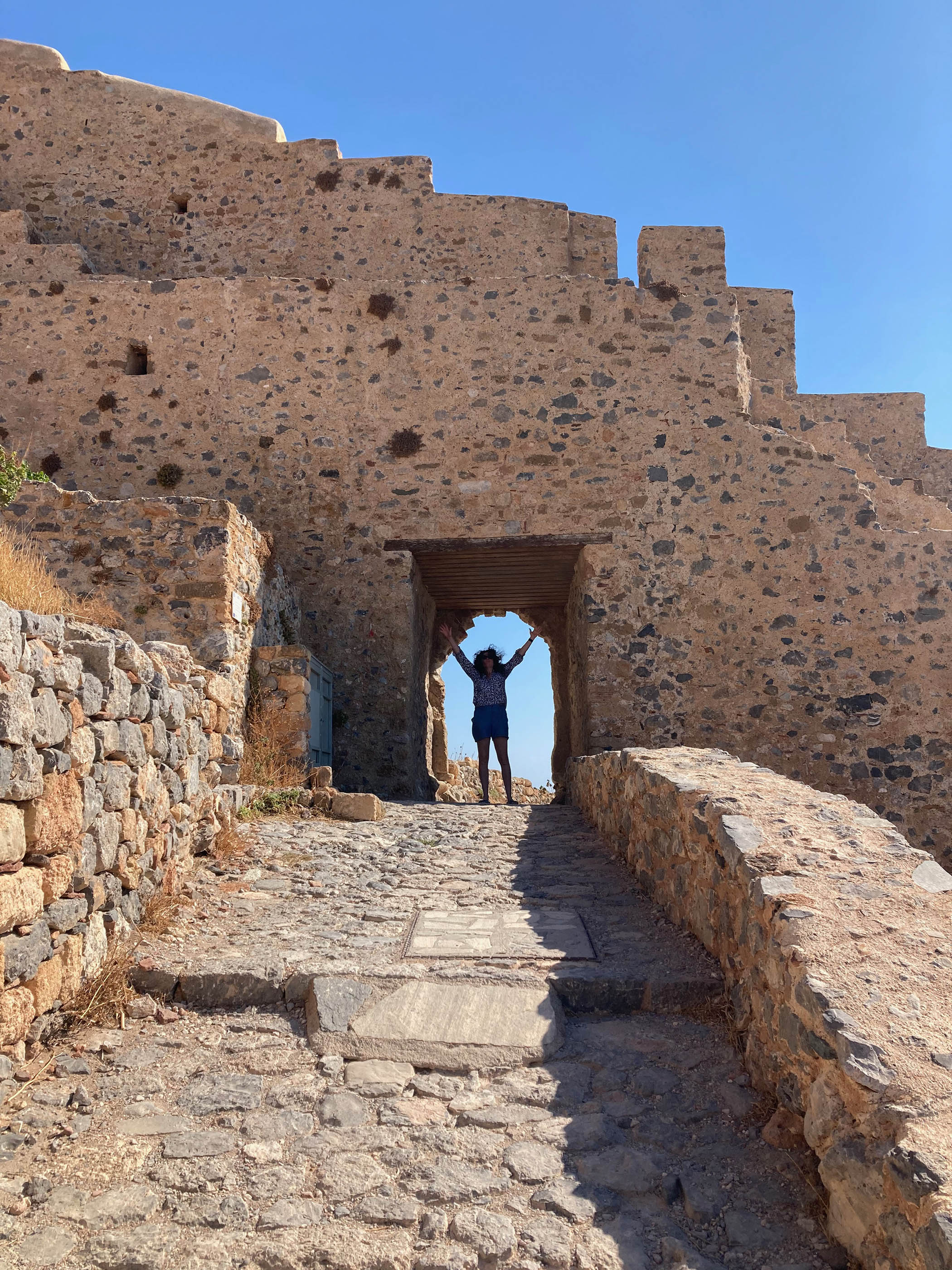
If you build it: Charlotte falls for Monemvasia, which means ‘one way in’
Now our holiday proper began. She’d recommended Ambelakia beach, which we’d already shunned once in our search for artificial perfection. When, humbly, we returned, we found an idyll of soft sand, interesting pebbles, silky water with a view of Monemvasia in all her glory, and a sweet umbrella attendant, muscly as a centaur. Better yet was Ouzeri O Takis, her other suggestion: an absurdly beautiful taverna with mournful Greek music, perfect fava, a rose geranium liqueur like adult Greek delight and a cloudy blood moon reflected in the dark sea.
By our penultimate day, we’d made friends with Spartan greengrocers, drunk cocktails in the dark above the castle ramparts, and stumbled on my dream shop just outside town: Ktima Kalantzi, where a mother and daughter sell homemade spoon sweets, pickled purslane and caper berries from their shelf-lined front room. And the highlight: Gerakas, “Greece’s only fjord”, where, as in dreams, a waiter like a young Victor Mature served delicious food in a tiny harbour-front taverna called To Remetzo, and gave us a scholarly leaflet in perfect English describing the acropolis above the village. It was a quick trot, past lemon-trees and washing lines, up to the tumbled walls of a lost settlement, Zarakas, with enormous views of the blue sea.
This wasn’t the dead hand of AI but happenstance, serendipity, pure clumsy luck. We even composed a beautiful theme tune, a love song to Monemvasia, totally original if slightly resembling the tune of Frère Jacques. Then, free, happy, entirely human, we programmed Monemvasia into the satnav and drove back to our tied-island paradise.
Photographs by Alamy; Charlotte Mendelson
Newsletters
Choose the newsletters you want to receive
View more
For information about how The Observer protects your data, read our Privacy Policy
